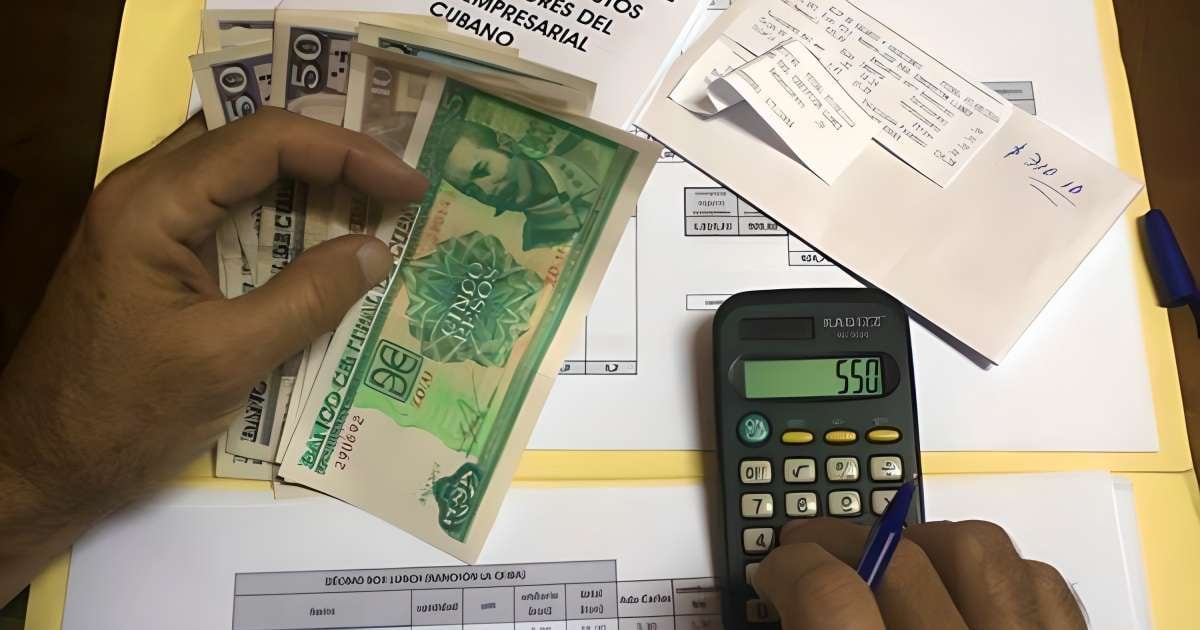
From January to October of this year, the authorities in Matanzas imposed fines exceeding 652 million pesos on private entrepreneurs for tax evasion.
Yenli Ortega Salgueiro, director of the National Office of Tax Administration (ONAT) in the province, revealed to the newspaper Granma that although the quality of taxpayer payments has generally improved, in many cases significant amounts of money are still being evaded.
In addition to the fines, the penalties included the closure of a small and medium-sized enterprise in the municipality of Perico and the temporary revocation of the authorization for 13 others, all for evading the sales tax.
Ortega Salguiero noted that control measures, audits, and inspections have been carried out, focusing on the economic actors with the highest levels of activity and on importers.
This group includes 983 contributors: 723 self-employed workers and 260 micro, small, and medium enterprises (SMEs), predominantly in the municipalities of Cárdenas and the provincial capital.
Of the 652 million pesos imposed as fines, 76.80% has already been recovered.
In the official's opinion, although this year tax collection has increased in the province, the balance is still far from what is needed.
The ONAT has identified the main types of evasion in Cuba: declaring and paying below the actual income earned, omitting the income obtained abroad from business operations, and using individuals who are not the true owners to conceal the existence of multiple businesses.
The regime boasts of having intensified its control measures, but experts in regulatory activities assert that it is unknown how much money is lost from public funds due to tax evasion.
In the first half of 2024, the government closed 15 small and medium-sized enterprises due to irregularities in their accounting.
According to Judith Navarro Ricardo, a legal specialist at ONAT, there were detected accounting mismanagement issues, such as purchasing equipment classified as direct expenses instead of inventory, as well as problems with financial statements, which in many cases are either missing or concealed.
"The small and medium enterprise that does not maintain proper accounting and, furthermore, fails to correctly pay its tax obligations shows an intention to evade, which gives us the right to proceed with the complaint," he emphasized.
Frequently Asked Questions about Fines and Sanctions for Private Businesses in Matanzas
Why were fines of 652 million pesos imposed on private businesses in Matanzas?
Fines were imposed for tax evasion. Authorities in Matanzas discovered that many private entrepreneurs were reporting income below their actual earnings, omitting income obtained from abroad, or using third parties to conceal the existence of multiple businesses. These practices resulted in economic penalties and the closure of businesses in the region.
What are the consequences of tax evasion for SMEs in Cuba?
The consequences include fines, business closures, and the revocation of licenses. Micro, small, and medium-sized enterprises (mipymes) that fail to meet their tax obligations may face severe penalties, such as temporary or permanent shutdowns of their operations, in addition to significant fines, as observed in Matanzas and other provinces in the country.
What measures has the Cuban government taken to combat tax evasion?
The government has intensified control and oversight actions. Measures such as audits, preventive seizures, business closures, and immigration restrictions for those with tax debts have been implemented. These actions aim to ensure compliance with tax obligations and recover resources for the state.
How does the immigration regulation regarding tax debts affect taxpayers in Cuba?
The regulation prevents taxpayers with debts from leaving the country. This measure is part of a strategy to ensure that individuals with tax obligations do not leave the country without settling their accounts, strengthening the control over tax evasion in Cuba.
Filed under: